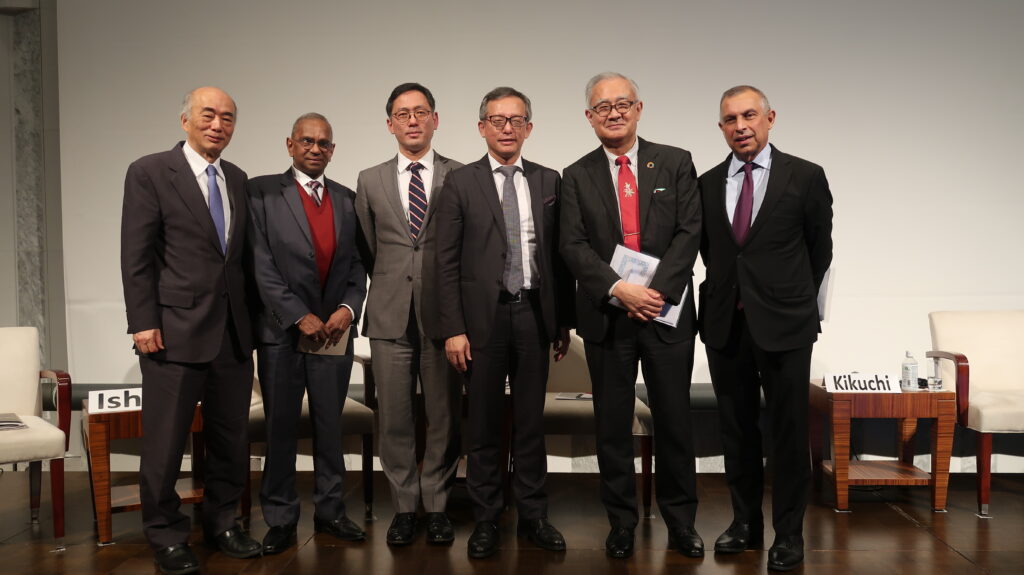Media Release
For Immediate Release
Harnessing Nature for Climate Action:
Opportunities for Businesses and Governments
Singapore, 28 June 2022 – According to the World Economic Forum’s Global Risks Perception Survey, the top three risks the world faces in the next decade are climate-related: (i) Climate action failure; (ii) Extreme weather; and (iii) Biodiversity loss. Many Southeast Asian cities are on the frontlines of unpredictable and extreme weather events. Over the past year, many ASEAN governments have stepped up to the challenge by setting ambitious net-zero targets. Alongside the push toward carbon neutrality, the need to protect natural ecosystems has also entered the mainstream. ASEAN countries including Indonesia, Malaysia, and Singapore signed the Glasgow Leaders’ Declaration on Forests and Land Use, pledging to halt and reverse forest loss and land degradation by 2030 while delivering sustainable development.
The 9th edition of the SDSWR themed “Harnessing Nature for Climate Action: Opportunities for Businesses and Governments”, was held in a hybrid format, both at the Conrad Centennial Singapore and virtually, on 28 June 2022. The Dialogue examined ASEAN countries’ carbon market developments and innovative approaches towards ecosystem restoration and conservation. The event attracted more than 290 registrants ranging from policymakers, industry experts, corporate leaders, to key decision-makers from around the world, in particular, Indonesia, Malaysia and Singapore. (The programme for the 9th SDSWR is appended in Annex A.)
“Collective action can already be seen in ASEAN, with governments strengthening collaborations through bilateral agreements,” said Associate Professor Simon Tay, Chairman, SIIA.
On the importance of sustaining momentum towards climate action within the region, he added that “It is the SIIA’s hope that the region can move towards an ASEAN climate community to strengthen climate resilience and foster cooperation”.
In her keynote address, Ms. Grace Fu, Minister for Sustainability and the Environment, Republic of Singapore, commented, “The upcoming COP27 will grapple with the triple confluence of COVID, conflict and climate, which has caused economic and geopolitical shockwaves.” She noted that “nations need to rekindle the spirit of partnerships to limit temperature increase to 1.5 degree Celsius and prevent setback that we cannot afford”.
“Nurturing such partnerships requires three things—Challenging Limits, Collaboration and Commitment” she added.
In the panel “From Article to Action – Implementing Article 6 and Piloting Carbon Credit Schemes”, of the 9th SDSWR, panel speakers discussed why it is important for ASEAN countries to develop carbon markets and how businesses can benefit from carbon trading. Singapore, with its reputation for governance, can play a crucial regional role to promote transparency in the carbon market.
Ms. Herry Cho, Managing Director and Head of Sustainability and Sustainable Finance, Singapore Exchange (SGX), said, “[Carbon markets are] an opportunity to prepare, or plan, for costs that are going to be externalised on your profit and loss and balance sheet in the future if you don’t take action today.”
“The democratising of access to carbon markets and credits will help businesses, especially small- and medium-sized enterprises, offset their hard-to-abate emissions in the near to mid term, as they continue to advance their decarbonisation pathways in the long run,” said Mr. Eric Lim, Chief Sustainability Officer, United Overseas Bank.
The 9th SDSWR also saw speakers and participants discussed the positives actions undertaken by governments and corporations in addressing climate change.
Mr. Michal Zrust, Co-founder and Executive Director, Lestari Capital, said, “We are seeing the commitments that we made are going way beyond that. [We are] going way beyond actually minimising or avoiding negative impacts, [we are] are actually starting to focus on aspects such as forest-positive, nature-positive.”
Mr. Craig Tribolet, Sustainability Operations Manager, Asia Pacific Resources International Holdings Ltd. observed that COP26 had demonstrated stakeholders had moved beyond talking about the opportunity to act and have embraced the sustainable development imperative.
The SIIA also launched the Haze Outlook 2022 at the 9th SDSWR. The annual Haze Outlook report provides an assessment of how likely it is that the haze will return to the region, and how severe any haze might be. The Haze Outlook for this year is rated Amber, on a scale of Green, Amber, to Red.
For the past two years, skies in the region have remained haze-free due in large part to efforts by Indonesian President Joko Widodo’s administration. The Haze Outlook 2022 assesses that Southeast Asia is not expected to experience another severe haze incident on the level of previous crises in 1997-98, 2013, 2015, and 2019. However, there is a chance that the region may experience some haze this year, due to current market conditions. Agricultural commodity prices, particularly the price of palm oil, have hit record levels this year amid the inflation in food prices sparked by the Russia-Ukraine War. Higher prices may drive expansion of plantations, increasing the risk that bad actors might clear land through the use of fire and contribute to deforestation. Continued effort is needed to ensure that development in the region’s commodities sector moves forward in a sustainable fashion.
The 9th SDSWR was made possible by the following sponsors –
- Gold sponsor – Temasek Foundation
- Silver sponsor – RGE
***
Media Contact
Claire Pan
Assistant Director, Sustainability
Email: claire.pan@siiaonline.org
About the Singapore Institute of International Affairs
Established in 1962, the Singapore Institute of International Affairs (SIIA) is a non-profit and independent think tank committed to producing policy analysis, fostering in-depth dialogues and bridging gaps between policymakers, private sector decision-makers and experts to shape public policy and social responses. Centred around ASEAN focused themes, the institute aims to deliver policy analysis in international affairs and on issues driving environmental sustainability. The SIIA has been consistently ranked as one of the leading think tanks in Southeast Asia and the Pacific, in the Global Go To Think Tank Index by the University of Pennsylvania. Since 2017, the SIIA was ranked the No. 1 independent think tank in Asia. It was also recognised as one of the top 50 think tanks globally, excluding the United States of America. For two consecutive years since 2019, it was recognised as the No. 1 think tank in South Asia, Southeast Asia, and the Pacific (excluding India). In 2020, it was also recognised as one of the think tanks with the best policy and institutional response to the COVID-19 pandemic.
About the SIIA’s Sustainability Programme
The SIIA’s Sustainability Programme was established in 1997 when it organised Singapore’s first haze dialogue with the Singapore Environment Council. Since then, the Sustainability Programme has evolved to address a range of sustainability issues ASEAN faces. In 2017, the SIIA authored the first study on sustainable finance in Singapore and how to move green investment forward. The Programme continues to focus on the forestry sector, as well as the use of carbon financing as a lever to drive Southeast Asia’s green recovery from the COVID-19 pandemic, the intersections between the green and digital economies, and how ASEAN can move towards becoming a climate community with common approaches to carbon policy and climate action.
As part of its Sustainability Programme, the SIIA facilitates dialogues between governments, private sector, academia and NGOs. One of the SIIA’s key platforms is its flagship event, the Singapore Dialogue on Sustainable World Resources (SDSWR), launched in 2014. The annual event attracts about 300 high-level participants to discuss best practices, new commitments and noteworthy cross-sector collaborations in ASEAN’s resource sector.




